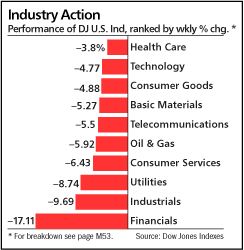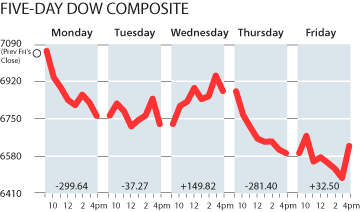
Both Fannie Mae and Freddie Mac are US government "sponsored" home loan banks. Each of them have formal names, but are primarily known by their nicknames.
In fact, both these institutions prefer to go by their nicknames rather than their official names. That's like the US government going by "Uncle Sam" all the time.
Fannie Mae was created by the government in 1938 to guarantee mortgage loans made by private banks.
After the Great Depression, which was characterised by bank failures on the one hand, and substantial losses of income on the part of large number of households on the other, the private mortgage market was providing mortgage loans to too few households.
The objective of the Roosevelt Administration was to restore widespread homeownership, which had become almost an ideology in the United States from early on in the twentieth century.
Thirty years later, in 1968, the government freed Fannie Mae from its control and privatized it with a Congressional charter. It became just like any other bank, except that it still did not make mortgage loans directly to the public. Instead, it bought up what is called the "secondary" market - the mortgages which had already been made by the private banks.
Two years later, in 1970, the US government created Freddie Mac, an exact duplicate of Fannie Mae. The reason behind a second institution was that high economic growth of the 1960s had led to rising incomes and the resulting widespread homeownership made just one government sponsored mortgage institution, namely Fannie Mae, unappealingly, if not scarily, large.
Both Fannie Mae and Freddie Mac have been private enterprises since then, up until September 7, 2008.
They have stockholders who provide the equity capital, they both sell bonds to raise funds, and they both pay for their operations out of their profits. There has been no money paid by the American taxpayers to these two institutions.
The two were "sponsored" banks, meaning that there was an implicit guarantee from the US government that it would not allow these two institutions to fail.
In fact, both these institutions prefer to go by their nicknames rather than their official names. That's like the US government going by "Uncle Sam" all the time.
Fannie Mae was created by the government in 1938 to guarantee mortgage loans made by private banks.
After the Great Depression, which was characterised by bank failures on the one hand, and substantial losses of income on the part of large number of households on the other, the private mortgage market was providing mortgage loans to too few households.
The objective of the Roosevelt Administration was to restore widespread homeownership, which had become almost an ideology in the United States from early on in the twentieth century.
Thirty years later, in 1968, the government freed Fannie Mae from its control and privatized it with a Congressional charter. It became just like any other bank, except that it still did not make mortgage loans directly to the public. Instead, it bought up what is called the "secondary" market - the mortgages which had already been made by the private banks.
Two years later, in 1970, the US government created Freddie Mac, an exact duplicate of Fannie Mae. The reason behind a second institution was that high economic growth of the 1960s had led to rising incomes and the resulting widespread homeownership made just one government sponsored mortgage institution, namely Fannie Mae, unappealingly, if not scarily, large.
Both Fannie Mae and Freddie Mac have been private enterprises since then, up until September 7, 2008.
They have stockholders who provide the equity capital, they both sell bonds to raise funds, and they both pay for their operations out of their profits. There has been no money paid by the American taxpayers to these two institutions.
The two were "sponsored" banks, meaning that there was an implicit guarantee from the US government that it would not allow these two institutions to fail.
What is it exactly that Fannie Mae and Freddie Mac do?
As stated above, the principal act that Fannie Mae and Freddie Mac are mandated to do, is to buy mortgages from private banks. The private banks, meanwhile, make mortgage loans with the comfort of knowing that they will be able turn around and sell those loans to Fannie Mae and Freddie Mac.
This "comfort" has two aspects. First, the banks which make the initial loans in the primary market get their liquidity back when they sell off their mortgages in the secondary market to Fannie Mae and Freddie Mac.
They can, therefore, make fresh mortgages to new customers with the funds they received from selling the previous mortgages, thereby making it possible for greater homeownership.
The second benefit that private banks get from the existence of Fannie Mae and Freddie Mac is that they can offer mortgages to middle class and low income households at affordable interest rates with the sure knowledge that Fannie Mae and Freddie Mac will take those mortgages over.
Where do Fannie Mae and Freddie Mac get the funds to buy these mortgages from the private banks? They raise funds first by issuing bonds on Wall Street just like any private company.
Then, in addition, they sell some of their mortgage holdings in the "tertiary" markets. They pool together a lot of mortgages and create a marketable security. These are called mortgage backed securities (MBS). If any household, whose mortgage is part of a MBS, fails to pay its mortgage obligation for, say, a month, then Fannie Mae or Freddie Mac, whoever is the relevant party, will make good the payment to the MBS holder.
Similarly, if there is a foreclosure and the sale price of the distress sale ends up being less than the value of the mortgage, then Fannie Mae and Freddie Mac will make up the difference.
A lot of these MBS are sold in foreign markets, especially to central banks with large US dollar holdings. The central bank of China is reputed to be holding $340 billion worth of MBS.
That is why Fannie Mae and Freddie Mac cannot be allowed to fail. The mortgage defaults and foreclosures in the US will hit the Asian central banks among others. The defaults on MBS backed by Fannie Mae and Freddie Mac will be looked upon the world as almost equivalent to a default by the US government on US treasury bonds. Even the thought of such a possibility is too scary.


No comments:
Post a Comment